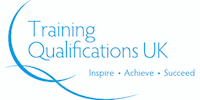Journalism - Higher Advanced Diploma - (TQUK - Training Qualifications UK)
Distance learning course with study materials, tutor support and final exam included
Academy For Distance Learning
Summary
- Certificate of completion - Free
- Exam(s) / assessment(s) is included in price
- Tutor is available to students
Add to basket or enquire
Overview
Journalism Online Course. 1200 Hours Higher Advanced Diploma Course (Endorsed by TQUK - Training Qualifications UK).
Acquire the writing skills needed to become both an employed and freelance Journalist.
To become a successful journalist, you will need a number of key attributes to call upon during your journalistic career. These would normally include:
- A real passion for journalism
- An ability to make a story interesting to readers through creative writing techniques
- Being able to use words efficiently, conveying all the relevant information within an set number of words
- Excellent knowledge of Journalism practices
- Freelance writing skills because many journalists start off as independent reporters, or will work as a Freelance Journalist at some stage of their careers
By taking this Higher Advanced Diploma, you will acquire these attributes plus more.
Times are changing and the old reliance on regulated courses using memory and repetition teaching techniques are rapidly being replaced. Today’s journalist needs to be an imaginative and talented writer, have a strong sense of independence, plus a good grasp of all aspects of IT including social media.
Many courses may not prepare you for this, but ours will. The compulsory modules in this course can also be found in our Advanced Diploma in Journalism.
Benefits of an ADL Endorsed Course?
Endorsed courses are skills based. They have been evaluated and approved by an independent awarding body such as Training Qualifications UK (TQUK).
What makes ADL’s Endorsed courses different?
- Flexible Self-Paced Learning– adjust your learning around your home and work commitments
- Start and Finish at any time
- Courses globally and industry relevant
- Practical Component at the end of most lessons.
Allocated your own tutor relevant to your subject. You can have as little or as much contact as you like with your tutor. They are there to support you all the way through.
This course is endorsed by TQUK -Training Qualifications UK, an OFQUAL awarding body.
Achievement
Certificates
Certificate of completion
Digital certificate - Included
Course media
Description
Higher Advanced Diploma in Journalism: VWR013
There are 12 modules to complete: 7 compulsory and 5 elective:
Compulsory Modules: Higher Advanced Diploma in Journalism: VWR013
1 Journalism Practice I
- Gain practical journalism experience. Develop your ability to write articles to specification and submit those articles for publication in a periodical (ie. Newspaper, Magazine or Ezine). By the end of this course, you will actually have something published
2 Journalism Practice II
- Expand your practical journalism opportunities. Like Journalism Practice 1, this module gives you valuable experience in writing for a student publication, which will greatly enhance your resume. Publishers are more likely to employ writers who have already been published.
3 Creative Writing
- If you love writing and want to improve your skills, network with other writers, and get personal guidance, then, this course is for you. Tutors are exceptionally well qualified, with university degrees and more than five years experience in writing and publishing.
4 Editing I
- Learn the basics of editing Editors work for publications both in house, and outside, as contractors. A good editor is always in demand; and with the internet, today’s editors can often work from virtually anywhere in the world. Alone, this course does not make you into a professional editor, but it can lead to valuable career opportunities when combined with other courses that develop your knowledge and skills in journalism.
5 Efficient Writing
- Learn to write effectively. This course is particularly useful for people who wish to brush up on their writing skills, or to obtain basic skills which they should have, but did not develop properly while at school. It aims to provide an understanding of how to write clearly and efficiently, and to communicate thoughts in the minimum number of words, and without any ambiguity.
6 Freelance Writing
Understand how to write as a freelancer and how publishers buy from freelance writers. Learn everything from good grammar, to planning and writing newspaper and magazine articles, advertisements, books and more. Emphasis is placed on things which are important to publishers who might buy your work. Tutors concentrate on your ability to properly structure an article, and to be both concise and clear in your use of words.
7 Research Project I
- Study Research online and learn to plan and conduct research relating to Journalism. Develop your ability to collect, collate and interpret data and prepare reports in ways relevant to the work environment. Monitor and evaluate your own work in order to develop a responsible attitude to workplace performance and quality assurance. Learn to explain research methods, including experimental techniques, commonly used in your discipline.
Elective Modules: Higher Advanced Diploma in Journalism: VWR013 – Choose 5
1 Advanced Freelance Writing
- Enhance your freelance writing skills! This is a course for people who already have skills in freelance writing, who have perhaps had some minor work published, but need to improve their overall technique and develop a more “efficient” approach to their work.
2 Biographical Writing
- A biography is neither a diary nor a journal. It’s more than a collection of ‘she did this’ and ‘he did that’. Although biographies are writing about life, it’s more useful to think of them as a collection of writings about life events. i.e. What are the key events in your subject’s life? How do these tie around a central theme or purpose?
3 Dramatic Writing
- Write drama like a professional! There are many different types of writing – short stories, poems, novels, screen plays etc. Dramatic writing can fall into all of these. A short story usually takes place over a shorter period of time. Choose this course if you would like to report on the theatre or movies etc, to convey the excitement of the play or film to your audience.
4 Editing II
- Develop your editing skills. This course is designed for self-editors, aspiring professional editors and desktop publishers. Its aim is to develop the students understanding of the editing processes and acquire the capacity to edit a broad range of publishing material including both print and electronic media, text and graphics, commercial and non commercial material.
5 Editing III
- This senior editing distance learning course is designed for editors who are already happy that they have advanced proofreading and copy editing skills and techniques and who want to move up to more senior or specialised roles. Senior editors are upper-level executives working in the publishing field and he or she will often oversee lower-level editors.
6 Ethics
- Ethics might simply be described as the study of “What is right and what is wrong”. Another way of defining ethics is “those norms and rules of conduct that distinguish between acceptable and unacceptable behaviour”. Ethics is commonly thought of as a subdivision within the broader discipline of “philosophy” (Philosophy is the study of human thoughts.)
7 Legal Terminology
- Understand Legal Language. Legal terminology is the collection of words and phrases that have a precise or peculiar use in the law profession. Legal Terminology is not only used by Lawyers; but is also used in a wide range of associated legal professions. Choose this course if you would like to report on legal matters.
8 Medical Terminology
- Do you need to communicate with doctors and patients? A special course designed for people working or wishing to work in medical environments, with no medical training, to develop skills to communicate clearly and effectively using medical terminology. Choose this course if you would like to report om medical matters.
9 Technical Writing
- Learn to write successfully in your specialist area. Develop skills to write technical information for a variety of different purposes. Students taking this course should have a basic understanding of technical writing including referencing procedures. If the subject is totally new, you may need to undertake some additional reading before progressing beyond the first lesson.
10 Industry Project
- If you work in the industry that you have been studying; you may submit a reference from your employer, in an effort to satisfy this industry (ie. workplace project) requirement; on the basis of RPL (ie. recognition for prior learning.) This can be achieved through your current and past work experience. The reference must indicate that you have skills and an awareness of your industry, which is sufficient for you to work in a position of responsibility. If you do not work in the relevant industry, you will need to undertake a project.
(11) Source: Guardian Newspaper Editorial
Each lesson culminates in an assignment which is submitted to the Academy, marked by the Academy's tutors and returned to you with any relevant suggestions, comments, and if necessary, extra reading.
Who is this course for?
Freelance Writers, Journalists, Publishers, Magazine/Newspaper Editors
Requirements
A pc or laptop with internet connection.
Career path
There are many career opportunities within the field of Journalism. It is helpful to think about the type of journalism you are aiming for:
- Broadcast journalist
- Magazine features editor
- Magazine journalist
- Newspaper journalist
- Press sub-editor
- Freelance writer
Whatever your choice, a Higher Advanced Diploma in Journalism will be all you need to stand out from the crowd.
Questions and answers
What is the NQF level of this qualification and is this qualification enough to then continue on to do a degree through a mainstream university?
Answer:Hi Lyn Many thanks for your question. Would it be possible for you to contact our main offices, as unfortunately this REED platform has an extremely limited word count. If you simply google: "ADL, Academy for Distance Learning", we are the first search result. I'm also unable to place any URL's or telephone numbers on here. I'll happily go through all the details on the phone and your options regarding entry to university. Thank you so much. Kindest regards Amanda White General Manager
This was helpful.
Reviews
Currently there are no reviews for this course. Be the first to leave a review.
Legal information
This course is advertised on reed.co.uk by the Course Provider, whose terms and conditions apply. Purchases are made directly from the Course Provider, and as such, content and materials are supplied by the Course Provider directly. Reed is acting as agent and not reseller in relation to this course. Reed's only responsibility is to facilitate your payment for the course. It is your responsibility to review and agree to the Course Provider's terms and conditions and satisfy yourself as to the suitability of the course you intend to purchase. Reed will not have any responsibility for the content of the course and/or associated materials.





